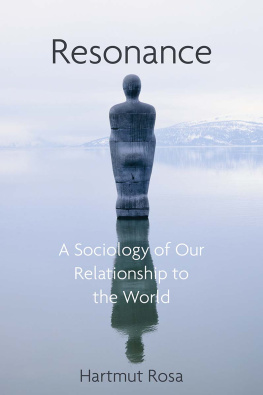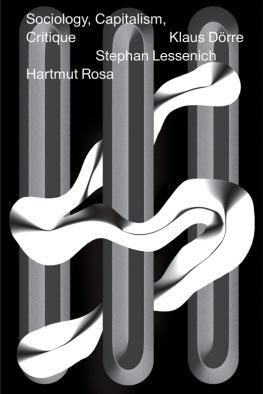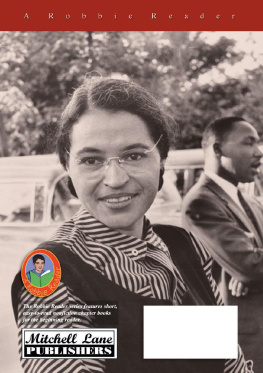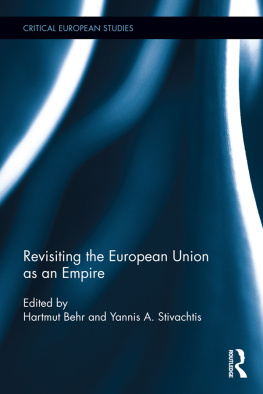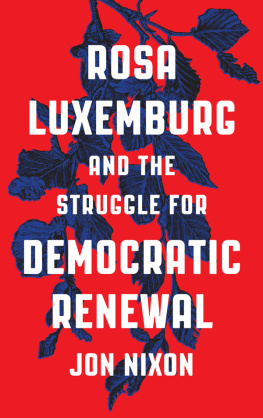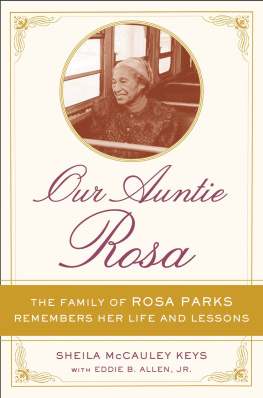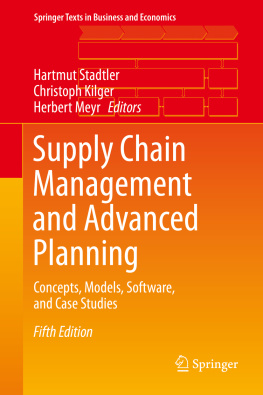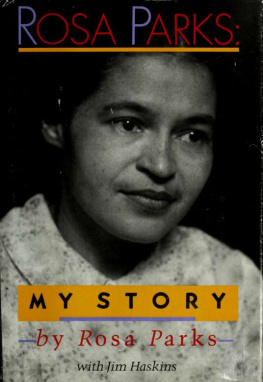Hartmut Rosa - Resonance: A Sociology of Our Relationship to the World
Here you can read online Hartmut Rosa - Resonance: A Sociology of Our Relationship to the World full text of the book (entire story) in english for free. Download pdf and epub, get meaning, cover and reviews about this ebook. year: 2019, publisher: Polity Press, genre: Religion. Description of the work, (preface) as well as reviews are available. Best literature library LitArk.com created for fans of good reading and offers a wide selection of genres:
Romance novel
Science fiction
Adventure
Detective
Science
History
Home and family
Prose
Art
Politics
Computer
Non-fiction
Religion
Business
Children
Humor
Choose a favorite category and find really read worthwhile books. Enjoy immersion in the world of imagination, feel the emotions of the characters or learn something new for yourself, make an fascinating discovery.
- Book:Resonance: A Sociology of Our Relationship to the World
- Author:
- Publisher:Polity Press
- Genre:
- Year:2019
- Rating:3 / 5
- Favourites:Add to favourites
- Your mark:
- 60
- 1
- 2
- 3
- 4
- 5
Resonance: A Sociology of Our Relationship to the World: summary, description and annotation
We offer to read an annotation, description, summary or preface (depends on what the author of the book "Resonance: A Sociology of Our Relationship to the World" wrote himself). If you haven't found the necessary information about the book — write in the comments, we will try to find it.
Resonance: A Sociology of Our Relationship to the World — read online for free the complete book (whole text) full work
Below is the text of the book, divided by pages. System saving the place of the last page read, allows you to conveniently read the book "Resonance: A Sociology of Our Relationship to the World" online for free, without having to search again every time where you left off. Put a bookmark, and you can go to the page where you finished reading at any time.
Font size:
Interval:
Bookmark:

Hartmut Rosa
Translated by James C. Wagner
polity
First published in German as Resonanz. Eine Soziologie der Weltbeziehung Suhrkamp Verlag, Berlin, 2016
This English edition Polity Press, 2019
Polity Press
65 Bridge Street
Cambridge CB2 1UR, UK
Polity Press
101 Station Landing
Suite 300
Medford, MA 02155, USA
All rights reserved. Except for the quotation of short passages for the purpose of criticism and review, no part of this publication may be reproduced, stored in a retrieval system or transmitted, in any form or by any means, electronic, mechanical, photocopying, recording or otherwise, without the prior permission of the publisher.
The Logical Song
Words & Music by Richard Davies & Roger Hodgson.
Copyright 1970 Almo Music Corporation and Delicate Music.
Universal Music Publishing Limited.
All Rights Reserved. International Copyright Secured.
Used by Permission of Hal Leonard Europe Limited.
La Luna
Words & Music by Richard Nowels and Ellen Shipley.
Copyright 1989 BMG Bumblebee and Spirit Catalogue Holdings SARL.
BMG Rights Management (US) LLC and Spirit Music Publishing Limited.
All Rights Reserved. International Copyright Secured.
Used by Permission of Hal Leonard Europe Limited.
Wind Of Change
Words & Music by Klaus Meine.
Copyright 1997 BMG Rights Management GmbH.
BMG Rights Management (UK) Limited.
All Rights Reserved. International Copyright Secured.
Used by Permission of Hal Leonard Europe Limited.
Mad World
Words & Music by Roland Orzabal.
Copyright 1996 Orzabal Roland Ltd.
BMG Rights Management (UK) Limited.
All Rights Reserved. International Copyright Secured.
Used by Permission of Hal Leonard Europe Limited.
ISBN-13: 978-1-5095-1992-7
A catalogue record for this book is available from the British Library.
The publisher has used its best endeavours to ensure that the URLs for external websites referred to in this book are correct and active at the time of going to press. However, the publisher has no responsibility for the websites and can make no guarantee that a site will remain live or that the content is or will remain appropriate.
Every effort has been made to trace all copyright holders, but if any have been overlooked the publisher will be pleased to include any necessary credits in any subsequent reprint or edition.
For further information on Polity, visit our website: politybooks.com
The translation of this work was supported by the DFG Research Group on Post-Growth Societies at the Friedrich Schiller University Jena.
By the sea, by the dreary, darkening sea,
Stands a youthful man,
His heart all sorrowing, his head all doubting,
And with gloomy lips he questions the billows:
[]
The billows are murmuring their murmur unceasing,
Wild blows the wind, the dark clouds are fleeting,
The stars are still gleaming, so calmly and cold,
And a fool waits for an answer.
Heinrich Heine, Questioning (from the North Sea cycle)
Nothing on earth and nothing in the empty heavens is to be saved by defending it. [] Nothing can be saved unchanged, nothing that has not passed through the portal of its death. If rescue is the inmost impulse of any mans spirit, there is no hope but unreserved surrender: of that which is to be rescued as well as of the hopeful spirit. [] The question whether metaphysics is still possible at all must reflect the negation of the finite which finiteness requires. Its enigma animates the world intelligible. [] The concept of the intelligible realm would be the concept of something which is not, and yet it is not a pure nonbeing. Under the rules of the sphere whose negation is the intelligible sphere, the intelligible one would have to be rejected without resistance, as imaginary. Nowhere else is truth so fragile. It may deteriorate into the hypostasis of something thought up for no reason, something in which thought means to possess what it has lost; and then again the effort to comprehend it is easy to confuse with things that are. If in our thinking we mistake thoughts for realities [] our thinking is void. [] But reflection is not cut short by the verdict on semblance. Once made conscious, the semblance is no longer the same. What finite beings say about transcendence is the semblance of transcendence; but as Kant well knew, it is a necessary semblance. Hence the incomparable metaphysical relevance of the rescue of semblance, the object of esthetics.
Theodor W. Adorno, Negative Dialectics
This book was written over a very long period of more than ten years. It is the end result of a repeatedly renewed search for an answer to the crisis of the present age that I diagnosed in Social Acceleration, and at the same time is also the result of many intense conversations, discussions, and encounters going back many years. It is ultimately a product of dialogue, of an ongoing debate with my friends, students, colleagues, and many other people who have searched and pondered with me. I cannot possibly acknowledge all of them here. There are many more than I can even name, and so I must ask that all these others accept my apologies!
Resonance emerged in the context of the Center for the Study of Post-Growth Societies at the University of Jena, which my colleagues Klaus Drre, Stephan Lessenich, and I founded together. It is my contribution to our mutual effort to conceive of a world beyond the blind compulsions of growth and acceleration. I owe great thanks to both Klaus and Stephan, to all of the colleagues, fellows, and guests of the Center, and of course to the German Research Foundation (DFG) as our financing institution. The Center also made possible the international workshop on the topic of resonance which I convened in May 2014 and from which I greatly profited. For this, I would like to thank all those who participated, among them Axel Honneth, Rahel Jaeggi, Eva Illouz, Hans Jrgen Scheurle, Dietmar Wetzel, Thomas Fuchs, and Charles Taylor. I consider it my great fortune that, over years of work on this project, Charles became a good friend who always inspired me with his enthusiasm and pushed me forward whenever I was seized with doubt. I also gleaned valuable insights from other colleagues and fellows at the Center, particularly Nancy Fraser, Barbara Muraca, Mathijs Peters, Dimitri Mader, and Johanna Sittel. The same can be said of my colleagues in the Department of Sociology at the University of Jena as well as the associates, fellows, and doctoral students of the Max Weber Center for Advanced Cultural and Social Studies at the University of Erfurt. I would like to acknowledge by name my co-director in Erfurt, Jrg Rpke, together with Jrg Oberthr, Peter Schulz, Anja Gregor, Ulf Bohmann, Sebastian Sevignani, Andr Stiegler, Diana Lindner, Stefanie Brner, Michael Beetz, and Markus Kleinert, as well as Stephan Langenhan, Michael Karpf, Anne Jasmin Bobka, David Reum, Paul Srensen, and Katharina Block. I would further like to thank Ilona Bode for our wonderful collaborations at the Max Weber Center, without which I would scarcely have been able to write this book.
I also owe thanks to the philosopher Michael Groheim, who offered me valuable insights on the phenomenology of resonance, and to Lambert Wiesing our discussions about luxury and resonance yielded not only two books, but also a joint seminar. I was further inspired by my colleagues who helped to launch the interdisciplinary, DFG-supported postgraduate research group on The Model of Romanticism in Jena, and I thank them for their important observations about the close connection between Romanticism and resonance. Finally, I would also like to highlight the German National Academic Foundations 2013 summer academy in La Colle-sur-Loup, where I taught a course on experiences of resonance in literature together with Daniel Fulda. I learned much from the interpretations and suggestions of the participating students, and especially from my intense conversations with Daniel. The same applies to two block seminars in the Thuringian Forest with students of sociology, philosophy, and education from the University of Jena, at which I immensely profited from my collaborative work with Tilo Wesche and Jens Beljean.
Next pageFont size:
Interval:
Bookmark:
Similar books «Resonance: A Sociology of Our Relationship to the World»
Look at similar books to Resonance: A Sociology of Our Relationship to the World. We have selected literature similar in name and meaning in the hope of providing readers with more options to find new, interesting, not yet read works.
Discussion, reviews of the book Resonance: A Sociology of Our Relationship to the World and just readers' own opinions. Leave your comments, write what you think about the work, its meaning or the main characters. Specify what exactly you liked and what you didn't like, and why you think so.

